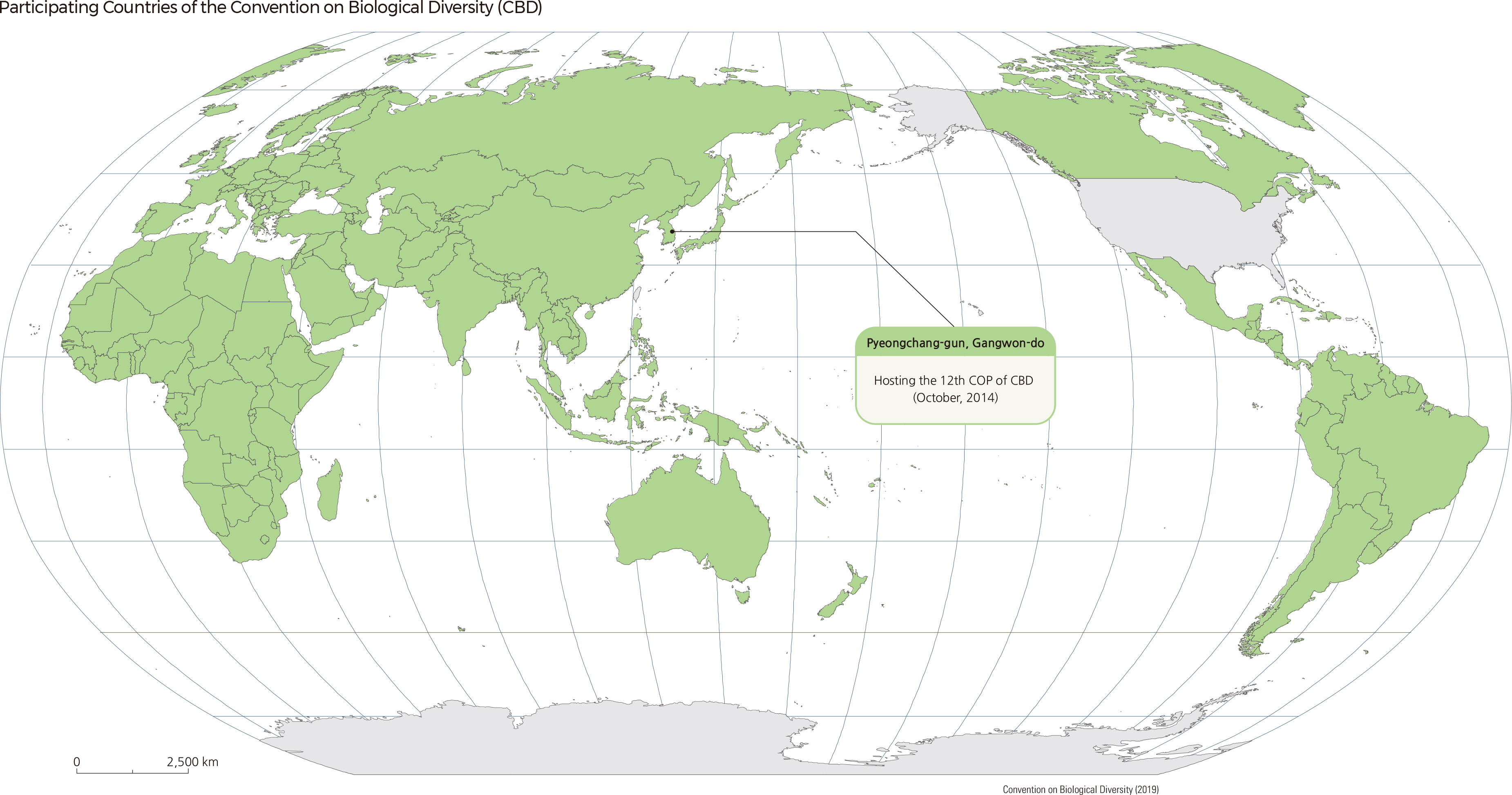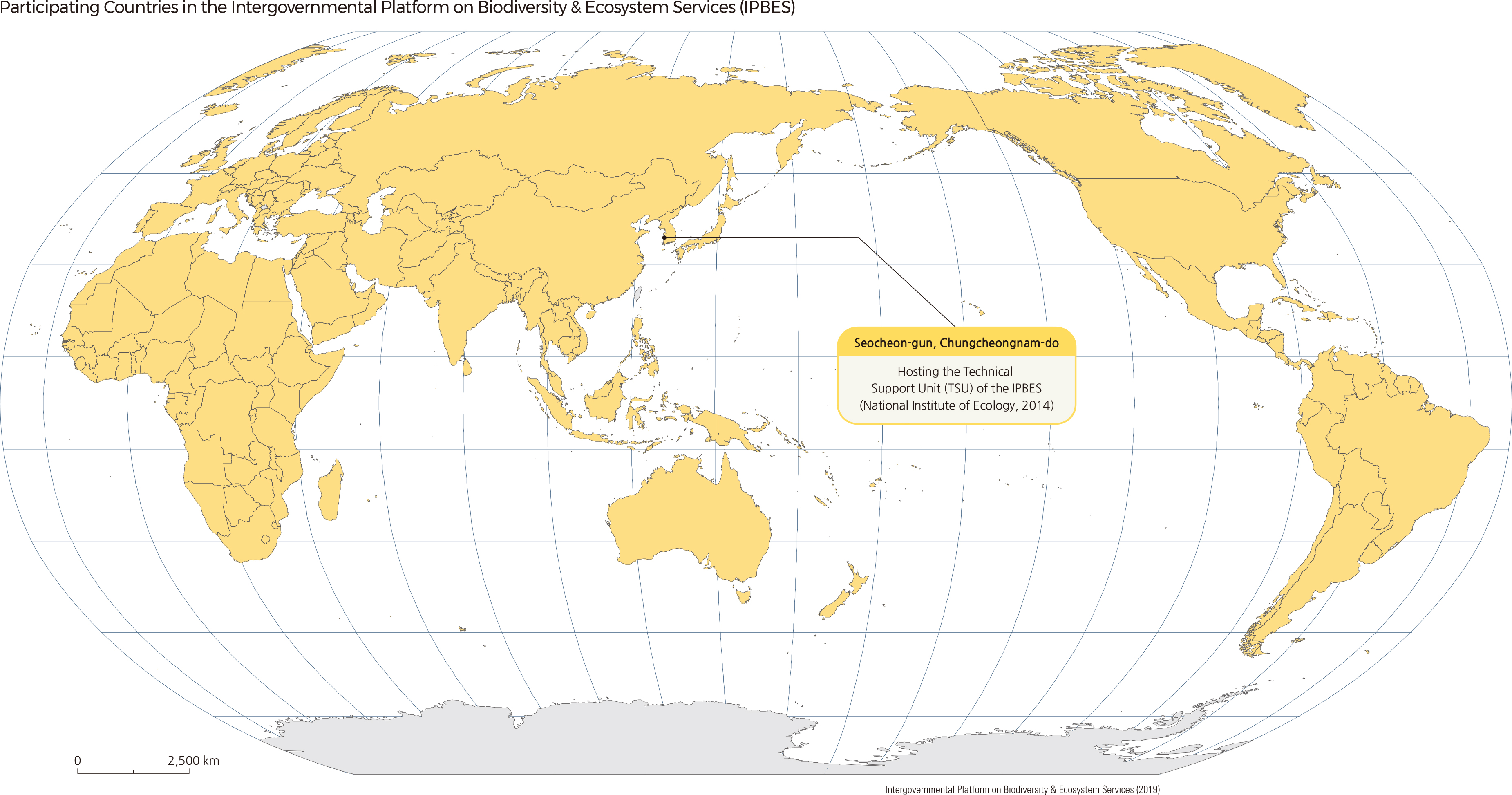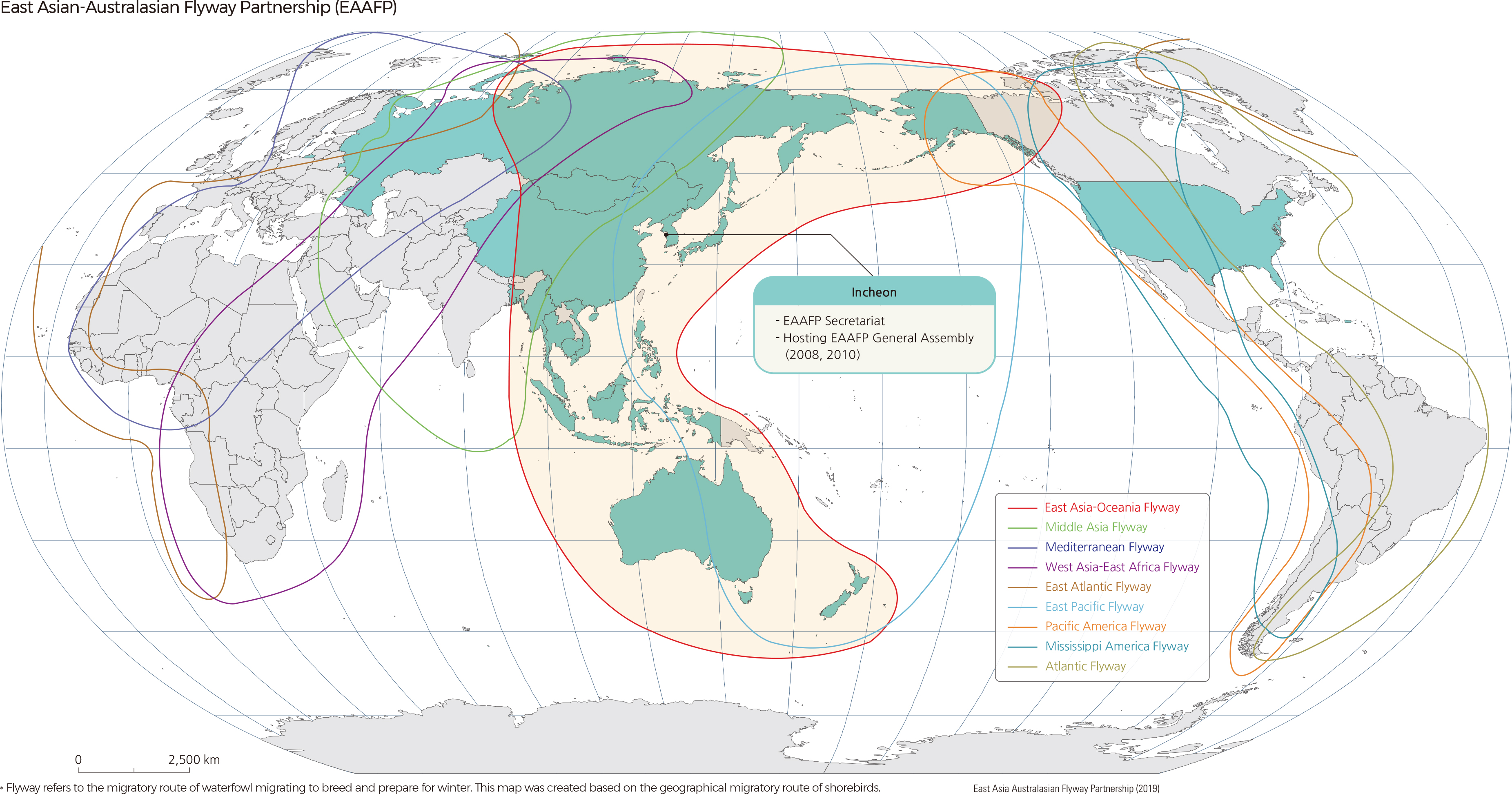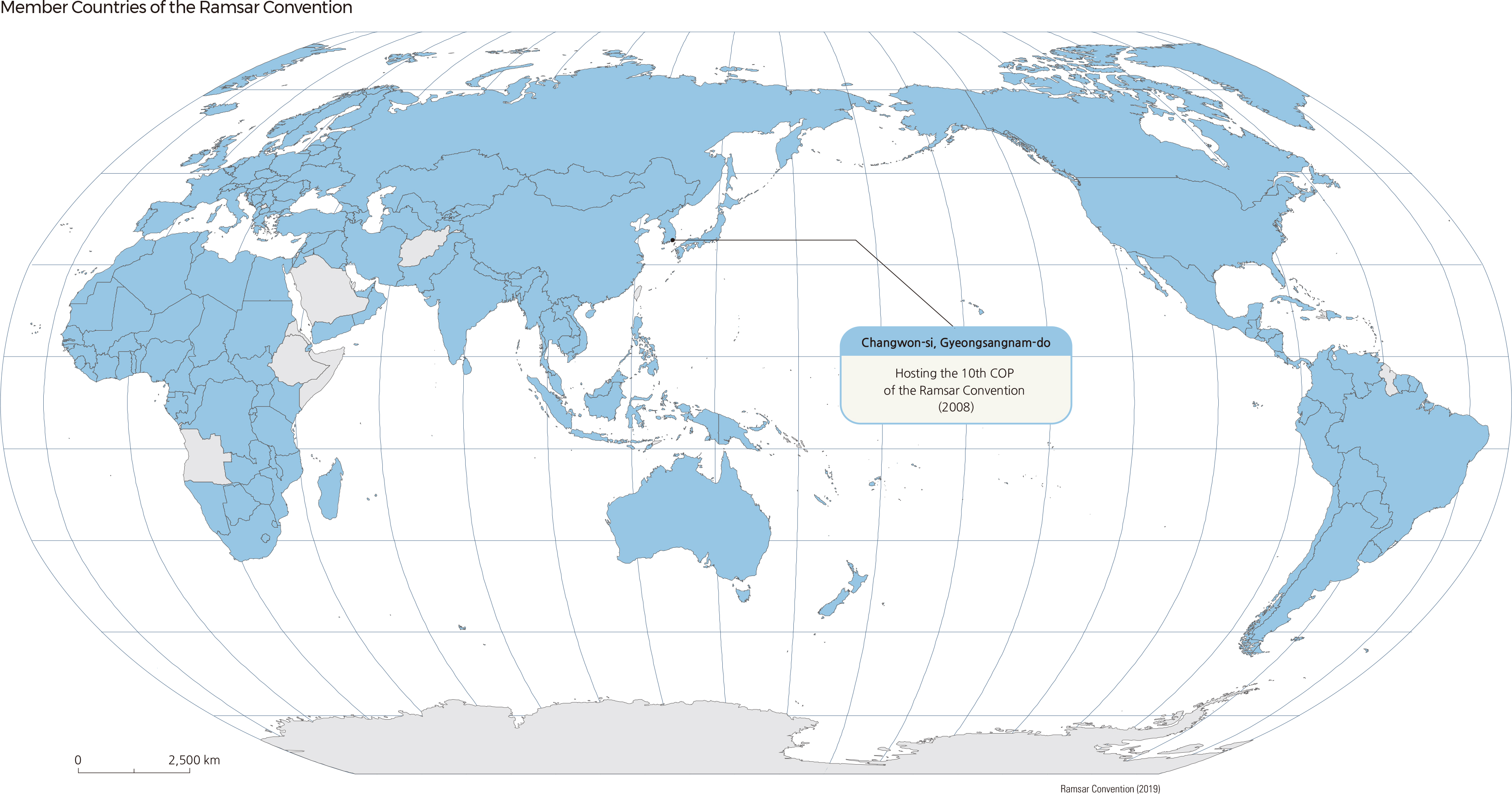English II 2020
The Earth is one interconnected ecosystem. Thus, all human activities, such as climate change, biodiversity reduction, and distortion of nutrient cycle processes, affect the entire world. Some environmental and ecological issues can be managed at a local scale, but most current issues require regional and national cooperation over a long time. To effectively take action against these urgent environmental and ecological issues, the international society has organized more than 170 international conventions on the environment.
The Convention on Biological Diversity (CBD) aims to conserve biodiversity, enhancing the sustainable use of biological resources and to promote the fair and equitable distribution of the benefits obtained from the use of biological resources. Korea has been a party to the CBD since 1994. The 12th Meeting of the Conference of the Parties to the Convention on Biological Diversity (COP 12) was held in Pyeongchang-gun of Gangwon-do, Korea, in October 2014. The Korean government suggested the Bio-Bridge Initiative develop a streamlined mechanism for Technical and Scientific Cooperation between developed and developing countries.
The Intergovernmental Science-Policy Platform on Biodiversity and Ecosystem Services (IPBES) is the intergovernmental body that assesses the state of biodiversity and the ecosystem services to provide scientific and political consultation. At the 2nd General Assembly of the IPBES in 2013, Korea proposed to host the Technical Support Unit for the Task Force on Knowledge and Data of the IPBES. According to the decision of the third full Multidisciplinary Expert Panel and Bureau Meeting held in Germany in 2014, the Ministry of Environment of Korea officially launched the unit at the National Institute of Ecology.
The East Asian-Australasian Flyway Partnership (EAAFP) aims to protect migratory waterbirds, their habitat, and the livelihoods of people dependent upon them. The EAAF Partnership is comprised of partners, including governments, international Non-Government Organizations (NGOs), and inter-governmental organizations. Korea had proposed to host the Secretariat in Korea and officially launched the Secretariat in Incheon in 2009. Korea hosted general meets in Incheon in 2008 and 2010.
Korea held the 10th Meeting of the Conference of the Parties to the Ramsar Convention and the 12th Meeting of the Parties to the Convention on Biological Diversity. Government-affiliated institutions and universities have carried out cooperative projects on research, education, and exhibition with various foreign institutions. As a result, Korea plays an important role in international cooperation related to ecology. |




